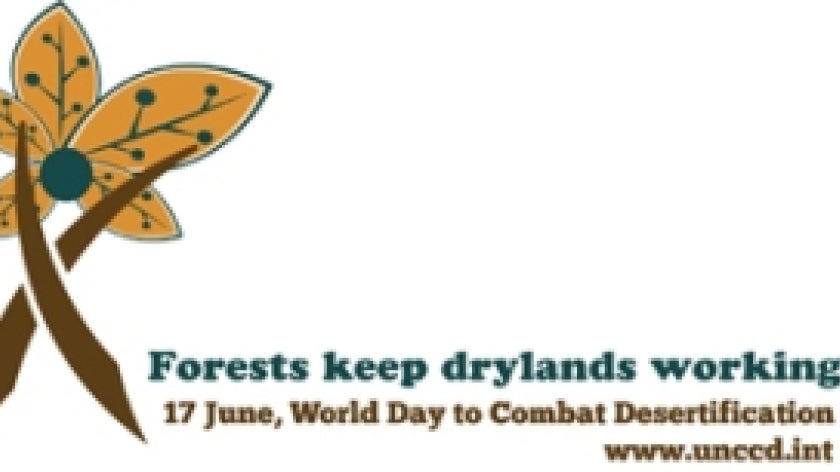
Message delivered on the occasion of the World Day to Combat Desertification 2011 by Monique Barbut, CEO and Chairperson, GEF
With the human population soon to reach 7 billion, our planet faces an unprecedented challenge in meeting food and fiber production needs in the coming decade.
Nearly two decades after the Rio Conventions came into existence the global community is still grappling with the challenges of balancing environment and development goals. Nowhere is this more obvious than in the production sectors that depend on land, and for which the lives of billions of people are at stake.
From the drylands of Africa and Asia to the sub-tropical grasslands of South America, the threat of land degradation and desertification continuous to undermine the ability of agro-ecosystems to achieve these needs. We must therefore combat land degradation through innovations that support productivity in agro-ecosystems while generating global environmental benefits. This is especially critical in the world’s dryland regions, which are a major priority for the UN Convention to Combat Desertification.
As a UNCCD financing mechanism, the GEF has a comparative advantage to help countries combat land degradation. GEF investments in sustainable land management have increasingly focused on promoting and supporting effective policies, legal and regulatory frameworks, capable institutions, knowledge sharing, and monitoring mechanisms at the national level. Our strategic investments of $800 million in that area have already made a difference in over 50 countries.
In the long term these investments are not only providing agro-ecosystem and forest ecosystem services but will also reduce vulnerability to climate change and other human-induced impacts.
Above all what we are facing here is a serious threat to global security: National level environmental challenges can lead to instability and conflict that threaten the security of other countries because of migration. Environmental degradation is one of the greatest risks to local communities that depend on natural resources for their livelihoods. Our engagement therefore is based on two overarching principles: environmental security and food security for peace in a fragile region.
Environmental security includes maintaining services provided by ecosystems and their impacts on livelihood conditions. Conservation of the natural environment and diversification of income sources improve the well-being of communities and contribute to reversing migration patterns towards urban areas and abroad. The improvement of land management in large areas clearly contributes to reduced tensions between farmers and pastoralist communities.
On this occasion of the World Day to Combat Desertification I would like to remind all of us that sustainable land management must lie at the heart of our concerted efforts in safeguarding the environment and ecosystem services in the context of sustainable development.
Currently in the Universe there is only one planet we can live on...So let’s not destroy it.